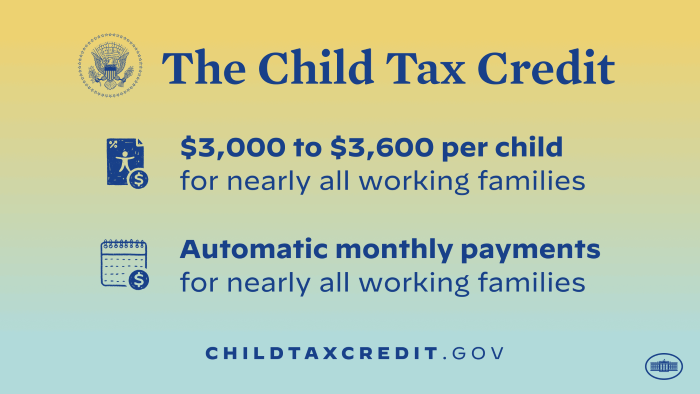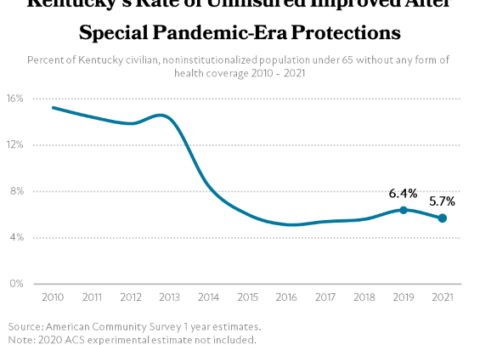Beginning today, July 15, the families of nearly 1 million Kentucky children — and 66 million children nationwide — will begin receiving much-needed monthly payments through the improved Child Tax Credit (CTC) included in the American Rescue Plan Act (ARPA) passed by Congress. That act made the CTC bigger, available to more children and on hand now for immediate relief.
The boost in the size of the CTC is significant. ARPA increased the amount of the credit for 2021 from $2,000 per child to $3,600 for children under 6 years old and $3,000 for children between 6 and 17 years old. ARPA also eliminated a provision that previously prevented the families of nearly half of Kentucky children from receiving the full credit. The poorest 20% of Kentucky families with kids will receive $4,240 more on average over the year, boosting their incomes by 1/3.
To get money into families’ pockets now, half of the larger credit will be paid out in monthly payments starting today through December 2021. Going to families will be $250 per month per child for children ages 6-17 and $300 per month per child for children under the age of 6. Families will receive the other half of the credit on their 2021 tax return.
“Even if you don’t normally file a tax return, you may be eligible to receive these payments, but you have to go to a website to sign up,” said Dawn Howard, accountant and owner of JDawn Consulting. “Additionally, these payments are not taxable and don’t impact your qualification for other assistance programs like SNAP or Medicaid.”
Families who have already filed 2019 or 2020 taxes or who signed up for stimulus payments will automatically receive advance payments in July. Families who have not yet filed or aren’t typically required to file taxes because their incomes are too low will be able to sign up through a new online portal available at https://www.irs.gov/credits-deductions/child-tax-credit-non-filer-sign-up-tool.
More facts:
— Families can also use the website portal to find out if they are eligible, to opt out of advanced monthly payments if they’d rather receive the full lump sum at the end of the year, to see a list of payments and to make changes to their banking information. Soon, they’ll be able to update information such as home address, marital status, number of children and income. The IRS has said these resources will eventually be available in Spanish.
— The majority of families who receive advance monthly payments will not owe anything at the time of filing taxes because the second half of the credit will be applied then. However, some people may want to consider opting out of the advance payments: for instance, if their income increased this year over the new eligibility thresholds (see below), or if they claimed children as dependents last year but won’t this year because of custody arrangements.
— Married couples with incomes less than $150,000 and single parents (also called heads of households) with incomes less than $112,500 will qualify for the full expanded credit, with the credit gradually phasing out for incomes above those thresholds.
“We need everyone pitching in — state and local government, community organizations and anyone else who can lend a hand — to raise public awareness and assist families in signing up,” said Cara Stewart, director of policy advocacy at Kentucky Voices for Health. “Some misinformation and fear are out there, but these monthly payments have the power to help Kentucky families pay for housing, food, clothing, health care and child care now, and to leave them in a better financial situation going forward. That’s a huge benefit to our entire commonwealth.”
ARPA’s improvements to the CTC expire after 2021. President Biden has proposed extending them as part of his American Families Plan, which is now in front of Congress.
“Experts estimate ARPA’s improvements to the CTC will reduce child poverty in Kentucky by 44% this year. Research shows that programs like this are linked with long-term benefits for kids including better health, higher educational attainment and increased earnings later in life,” said Jason Bailey, executive director of the Kentucky Center for Economic Policy. “Congress must make ARPA’s landmark improvements to the credit permanent and secure this monumental victory in the fight against child poverty.”
For more information on the Child Tax Credit, Kentuckians can visit childtaxcredit.gov.


